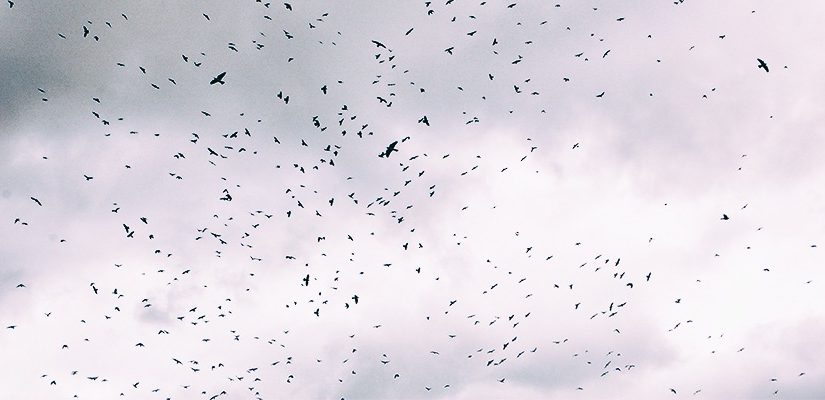You've heard of a class of students, a pack of dogs, a herd of cows, and probably a school of fish. These are collective nouns -- a group of people, animals or things.
The English language can get humorous at times, even a bit crazy, with its 900 collective nouns. Most were coined in the 15th Century, which could account for some of the odd ones.
Looking up, you may see a convocation of eagles, an exaltation of larks, a conspiracy of ravens, a murder of crows, a charm of finches, a cast of falcons, a confusion of warblers, or a parliament of owls.
If a mutation of thrushes has left a carcass behind, you will likely see a wake of buzzards.
On safari, you may see a bloat of hippos, a flamboyance of flamingos, a bask of crocodiles, a shrewdness of apes, a barrel of monkeys, an ambush of tigers, and a coalition of cheetahs along with the more familiar pride of lions.
Don't step on a generation of vipers or an army of ants.
In the water, you may be swimming with a bale of turtles, a bank of swans, a bind of eels, a congregation of alligators, a stream of minnows, a lounge of lizards, a pod of whales, a knot of toads, or a shiver of sharks.
If you are fortunate, you will be surrounded by a party of rainbow fish.
If you see a flight of dragons or a blessing of unicorns, be sure to take photos and call the newspaper.
Sadly, you are more likely to encounter a prickle of porcupines or a stench of skunks.


